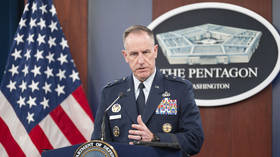ROAR: Russian Opinion and Analytics Review, May 20

This Wednesday, ROAR presents two opinions on nuclear disarmament, both by Russian academics living in the U.S.
ROSSIYSKAYA GAZETA publishes an article by Nikolay Zlobin of the Washington-based World Security Institute. He writes that at the moment, the main problem existing in Russia-U.S. relations is the enormously high level of mutual distrust.
The academic says that bridging this gap of confidence will take a lot of effort and time, while time is a limited commodity, considering that the first inevitable step the two countries have to make is the signing and ratification of a new treaty on the limitation of strategic assault weapons to replace START-1, which expires in December.
A new treaty is a must: prolonging the old one is not an option (its objectives have long since been achieved), while failure to sign and ratify a new one would inflict severe damage on the peace process and security in the whole world, says Zlobin.
It means, he continues, that the two nations only have 5 to 6 months to complete the whole process, including the ratification which may not be a problem in the State Duma but will take a lot of time in the U.S. Congress: the details of the new treaty will most probably be discussed meticulously and thoroughly, one by one.
Among the problems that would arise during the talks, Zlobin sees such issues as the U.S. program of placing missile defense elements in Eastern Europe, planned for completion in 2013. Russia, he says, at the moment considers the signing of the whole treaty to be dependent on the further perspectives of the missile defense elements in Poland and the Czech Republic. The U.S. is very unlikely to drop that program, says the academic, so compromise will have to be sought.
The positions on Iran’s nuclear program are clear by now, says the academic, and it is understood that there will be no ‘swap’ of Russian influence in that country (an earlier rumor had it that the U.S. was suggesting that Russia uses its influence to stop the nuclear program) in exchange for concessions with the missile defense. That problem would require a lot of attention, too.
Russia is also concerned about the lack of balance between the nuclear and non-nuclear (high precision) warheads in the possession of the U.S., as this, in the opinion of Russian experts, directly affects Russia’s security in case of significant cuts in its own nuclear warheads. In Russia it is understood, writes Zlobin, that any significant reduction in its nuclear arsenal will make the lack of balance in conventional weapons only more apparent.
Both sides, says Zlobin, now understand the importance of counting not only the warheads but the strategic means of delivery them as well. There is an understanding that the issue of stored or shelved warheads will be discussed too.
The Barack Obama administration is serious about destroying all nuclear weapons on the Earth in the next few decades, says Zlobin: from the American point of view any possibility of nuclear terrorism should be eliminated. On the other hand, he says, the U.S. administration understands that for Russia its nuclear arsenal is a matter of superpower status, and that ‘global zero’ in nuclear weapons is hard to achieve. The academic says, however, that today there exists a mutual understanding on a possibility of a huge cut: down to 1,500 warheads each from the current 9,400 (U.S.) and 13,000 (Russia).
VREMYA NOVOSTEI interviews Roald Sagdeev, a 76-year-old Russian physicist and Member of the Russian Academy of Sciences who teaches at the University of Maryland. 25 years ago the Academician greatly contributed to the forming of the Soviet position for Soviet-U.S. talks on disarmament. He has been living in America for the past twenty years.
Sagdeev says that the treaties signed in the 1980s, including START-1, were masterpieces of compromise. Reagan, an outstanding strategist says the Academician, once used a Russian saying while talking with Gorbachev: you should trust your partner but checking on him never hurts. Sagdeev also calls president Bush Senior a strategist and says that his son, George W Bush, is more gifted in tactics than in strategy. Under Bush, the U.S. administration decided to skip all control mechanisms proscribed in START-2 (signed in 1993 to be completed and ratified later) on the grounds that Russia and America are now friends, partners and allies in the war against terrorism, so there’s no need for control.
That is how, he continues, the problem of the ‘stored’ warheads came into being: the Russian side had to trust the American side about the warheads, to believe that once removed and stored they will never be attached to their vehicles again. Relations have deteriorated since then, and now this issue is becoming a stone on the road which, however, the Americans are ready to remove in a joint effort with the Russians.
The U.S. missile defense is another kind of problem, says the Academician: it is not new and once it had already disrupted negotiations on a ‘global zero’ option when Gorbachev and Reagan had been very near to achieving consensus on gradual removal of all nuclear weapons and the Soviet president added the demand for the discontinuation of the Strategic Defense Initiative, Reagan refused it and the deal had to be called off.
Later the program died a natural death: it was found to be too expensive. Something like that may yet happen to the current missile defense program, concludes Sagdeev, and it may be not really feasible to sacrifice to it the actual process of real disarmament. The tactic of firm dependence of the steps of one side exclusively on the desirable actions of the other side is the shortest way to a dead end in any negotiations. ‘And you know’, concludes Sagdeev, ‘a bird in hand…’
Evgeny Belenkiy, RT.













